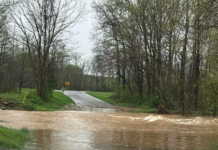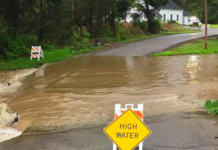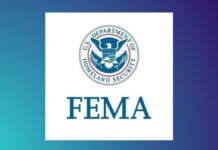Overnight, storms brought heavy rain, lightning, and strong winds. As rain continues, be aware of road closures from floods. Flooding can be a dangerous and disruptive event, but taking the right precautions before, during, and after a flood can help keep people safe. Here are some tips from the Flood Hub:
Before a flood, preparation is key:
– Sign up for flood warnings where available to receive early alerts.
– Create a flood plan to respond quickly and efficiently.
– Keep a well-stocked flood kit with essentials such as food, water, medications, and important documents.
– Turn off utilities at their main sources to reduce the risk of electrical hazards.
– Install property flood resilience (PFR) measures, such as barriers and pumps, for added protection.
– Know evacuation routes and have alternative options for a safe escape.
During a flood, safety should be the top priority:
– Avoid entering floodwaters, as strong currents pose a risk of drowning.
– Do not touch electrical devices if standing in or exposed to water to prevent electrocution.
– Stay clear of floodwaters, as they may be contaminated and hide trip hazards.
After the flood:
– Assess property for structural damage before re-entering.
– Never use petrol or diesel-powered generators indoors when drying out buildings due to carbon monoxide risks.
– Avoid driving through floodwaters, as it is highly dangerous.
– Maintain a safe distance from fast-flowing rivers and storm surges.
– Wash hands after contact with floodwater to prevent illness.
– Discard any food that has come into contact with floodwater.
– Ensure drinking water is from a safe source before consumption.
– Remove stagnant water to reduce breeding grounds for diseases.
Beyond physical safety, mental well-being is important:
– Seek support from family, friends, and neighbors to help recover emotionally from the impact of flooding.
By taking these precautions, communities can better withstand and recover from flood events.
Subscribe to our Newsletter!































